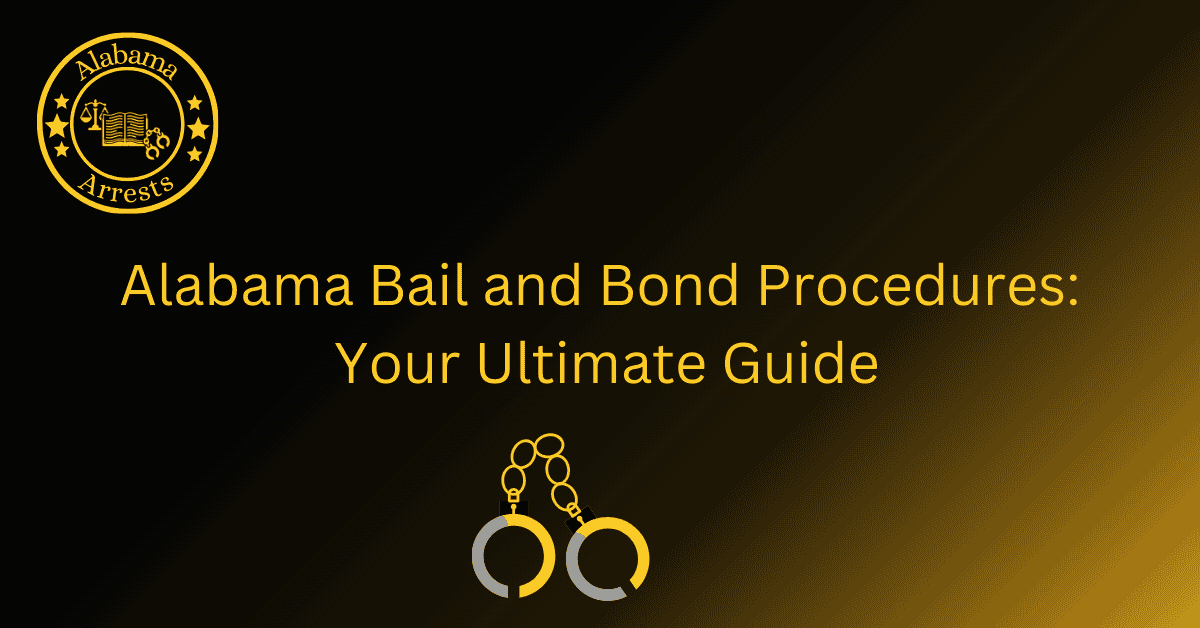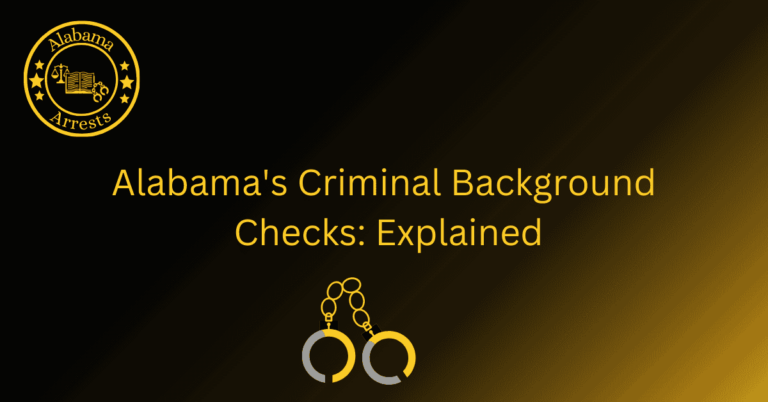Alabama Bail and Bond Procedures: Your Ultimate Guide
Welcome to our comprehensive guide on Alabama Bail and Bond Procedures. Whether you’re a legal professional, a defendant, or simply someone curious about the intricacies of the bail system, this guide aims to provide you with all the information you need. In the following paragraphs, we will delve into the various aspects of bail and bond procedures in Alabama, offering insights, tips, and expert advice.
Understanding the bail and bond process can be daunting, but with our user-friendly guide, you’ll gain clarity and confidence. We’ll walk you through the steps involved, from the moment of arrest to the final disposition of the case. Along the way, we’ll explain the different types of bonds available, the factors that influence bail amounts, and the various options for securing release.
Our goal is to empower you with knowledge, ensuring you’re well-informed and prepared to navigate the Alabama bail and bond procedures. So, whether you’re seeking bail for yourself or a loved one, or you simply want to expand your understanding of the legal system, let this guide be your ultimate resource. Let’s dive in and explore the intricate world of Alabama’s bail and bond procedures.
Understanding the Arrest Process in Alabama
When a person is arrested in Alabama, it is crucial to understand the process that follows. This section will provide a detailed explanation of what happens after an arrest and the various steps involved.
The Initial Arrest and Booking
After an arrest is made, the individual is taken into custody and brought to the local police station or county jail for booking. During this process, personal information is collected, fingerprints are taken, and a mugshot is captured. It is essential to know what to expect during the booking process to navigate it smoothly.
Setting Bail: Factors and Considerations
Once booked, the next step is determining the bail amount. This section will explore the factors that influence the bail amount, such as the severity of the offense, the defendant’s criminal history, and flight risk. Understanding these considerations will help you anticipate the potential bail amount for your case.
Types of Bonds Available
There are various types of bonds available in Alabama, each with its unique requirements and conditions. This section will shed light on the different options, including cash bonds, property bonds, and surety bonds. Knowing the pros and cons of each bond type will assist you in making an informed decision.
Securing Release: Options and Procedures
Securing release from custody is the ultimate goal, and there are multiple avenues to achieve it. This section will outline the different options for securing release, such as working with a bail bondsman or utilizing pretrial release programs. Understanding the procedures involved will help you navigate the process smoothly.
Post-Release Obligations and Consequences
Securing release on bail comes with certain obligations and potential consequences. This section will provide insights into the responsibilities of the defendant while on bail, including attending court appearances and complying with any imposed conditions. It will also highlight the potential consequences for non-compliance.
Seeking Legal Assistance: Importance and Benefits
Throughout the bail and bond process, seeking legal assistance is highly recommended. This section will emphasize the importance of having legal representation and the benefits it can provide. It will offer guidance on finding a reputable attorney who specializes in criminal defense and bail proceedings.
FAQs
What is bail?
Bail is a legal process where a person accused of a crime is released from custody before their trial, upon payment of a specified amount of money as a guarantee that they will appear in court.
How does the bail process work in Alabama?
In Alabama, after an arrest, a bail amount is set based on various factors such as the severity of the crime, the defendant’s criminal history, and the flight risk. Once the bail amount is set, the defendant or their family can pay the bail to secure their release.
What happens if I can’t afford to pay the full bail amount?
If you are unable to pay the full bail amount, you can seek the services of a bail bondsman. A bail bondsman will pay the bail amount on your behalf in exchange for a fee, usually a percentage of the total bail amount. This allows you to be released from custody without paying the full bail.
What is a bail bond?
A bail bond is a type of surety bond provided by a bail bondsman to secure the release of a defendant. The bail bondsman guarantees to the court that the defendant will appear for their scheduled court dates. If the defendant fails to appear, the bail bondsman may be responsible for paying the full bail amount.
Can bail be denied in Alabama?
Yes, bail can be denied in certain circumstances. If the court determines that the defendant poses a flight risk or a danger to the community, they may deny bail. Additionally, for certain serious offenses, such as capital offenses, bail may be automatically denied.
What happens if I fail to appear in court after being released on bail?
If you fail to appear in court after being released on bail, a warrant may be issued for your arrest. Your bail may also be forfeited, meaning you will lose the money or collateral that was used to secure your release. Additionally, you may face additional criminal charges for failure to appear.







